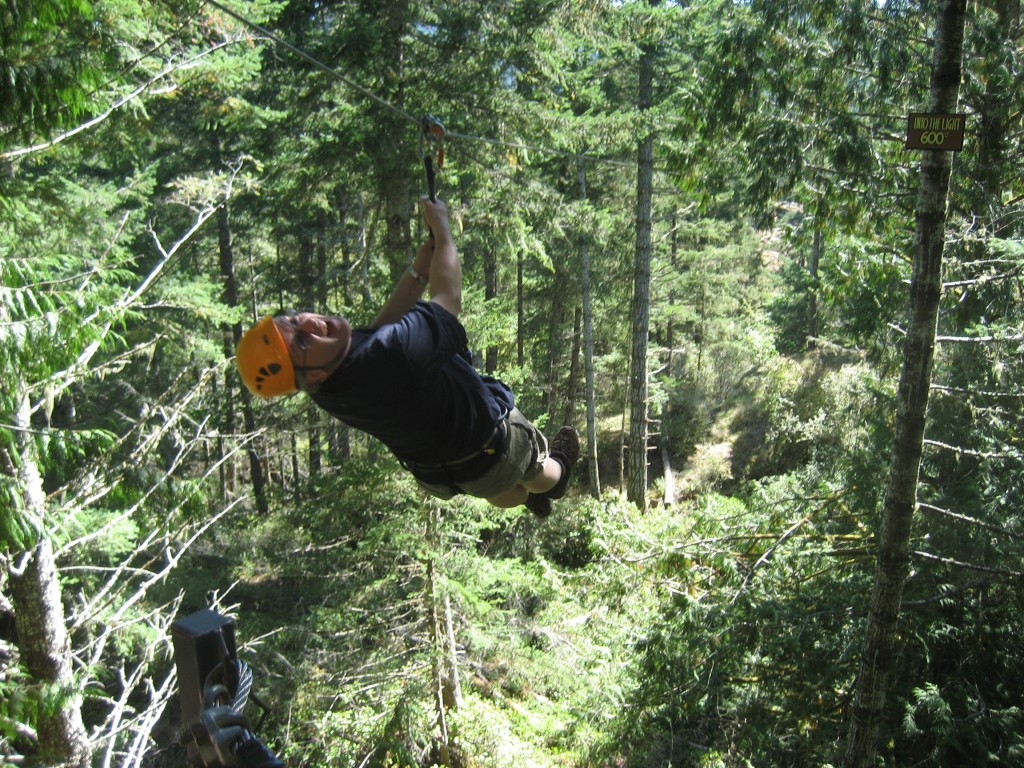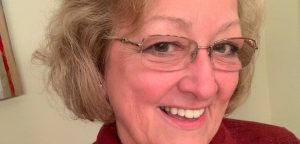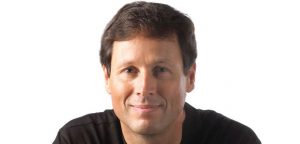The Secrets to Nick Usborne’s Success as an Online Copywriter Working for Apple, AOL, The New York Times, Yahoo! and Many More
 Barefoot Writers usually come into their careers in roundabout ways. It’s rare that a young person dreams of one day becoming a freelance writer.
Barefoot Writers usually come into their careers in roundabout ways. It’s rare that a young person dreams of one day becoming a freelance writer.
But eventually, after heading down one of the “typical” career paths, an interest in writing, and the desire to live life on their own terms, leads them on a journey to find a new, less-traveled path. A path that ultimately leads to the Barefoot Writer’s Life.
Nick Usborne’s path certainly fits the bill …
He discovered copywriting while looking to upgrade his sleeping situation, and after taking a job at an advertising agency, found that he had a knack and a passion for writing copy.
In the early days, he worked in direct mail, honing his craft — like many copywriters — under the watchful eye of mentors. But, when the Internet took off in the late 90s, he saw a big opportunity, switched gears, and focused solely on writing for the Web.
Along with creating a new career that would later be known as an online copywriter — or web writer — he published the first book ever written on the topic, Net Words: Creating High-Impact Online Copy.
Over his 30-year career, Nick has worked for big names such as AOL, Citibank, TV Guide, The New York Times, Reuters, Yahoo!, and Disney, among many others.
He also became an in-demand expert for industry publications, writing hundreds of articles for Clickz.com, MarketingProfs.com, iMediaConnection.com, and Business 2.0.
These days, Nick spends a lot of his time passing on his knowledge and experience to the next generation of writers, by speaking at seminars worldwide and through popular programs like AWAI’s How to Write Your Own Money-Making Websites and what Legendary Copywriter Bob Bly calls the “bible of copywriting,” Copywriting 2.0.
He’s a gifted teacher who is genuinely eager to help other writers make the leap and find fulfillment like he did in the writer’s life.
I spoke with Nick on a typical workday morning, from his home office in Montreal, Quebec.
And, even though I’ve interviewed him numerous times before about writing for the Web, I decided to focus this interview on his own personal path to becoming a Barefoot Writer, as well as get plenty of useful advice for writers who want to follow in his footsteps.
Nick, you’re one of the most productive people I know. What do you do when you first sit down at your computer each day? And tell me … are you wearing shoes?
No shoes, that’s for sure. The first things I do are check various news sites and look through my email. Not because I think these are the most important things to do first, but because this is all my brain is capable of before I have had at least two coffees.
I can relate! How do you take your coffee?
Most of the time I just make a regular coffee with a little cream and sugar. If I really want to taste a quality coffee, I drink it black. I guess my favorites right now are medium to dark roasted coffees from Indonesia. I also have a weakness for café latte, which I usually make once a day.
Okay, so along with your coffee, what’s on your desk right now?
My laptop, a second monitor, loose change, pens, paper clips, coffee mug, and disorganized piles of paper. I probably shouldn’t admit to the piles of paper, because I am constantly telling other people to keep their desks clear of clutter. I should follow my own advice, but generally fail in that regard. That said, when I’m really busy, I do clear things up. A messy desk is fine most of the time, but not so good when you absolutely have to be super-productive with your time.
What were you working on right before this interview?
I was working on an online sales page for an information product I have created. It has nothing to do with freelancing or copywriting. This is a totally separate project. And, I am loving it.
These days, I spend so much of my time teaching others, I had almost forgotten how much fun it is to practice the craft of copywriting.
I’d actually like to talk about your teaching in a minute. But first, what in the world made you decide to become a copywriter?
I didn’t decide. It pretty much happened by accident when I was living in London in a friend’s house. Actually, a few people shared the house and my spot was on a mattress on the floor of the upstairs bathroom.
Someone else in the house worked at an advertising agency, and I asked if it was fun. He said it was. Strangely, it had never even occurred to me that advertising agencies even existed. I thought companies created their own advertising. Anyway, I took out the Yellow Pages, typed up letters to the first 20 agencies listed, got three interviews, and one job offer as a Management Trainee.
I was shuffled through various departments at the agency, and it was while I was doing my stint in the creative department that I discovered I had a talent for copywriting.
That’s how it all began. I just wanted a job so I could afford to move my mattress from the bathroom floor to a bedroom floor!
Well, that’s definitely an answer I’ve never heard before. And clearly you were successful. You’ve had some pretty impressive clients over the last 30 years … big names like AOL, The New York Times, Yahoo!, and Disney. Looking back, which clients stand out as the best ones to work for?
When it comes to my best clients, it really has nothing to do with the size or fame of the company. Really, it all comes down to the relationship I have with the person at the client company. If
you work for a great company, but your contact person isn’t very smart or organized, the whole engagement can be a real grind.
Every single one of my favorite engagements has been when I was working with someone who was smart, professional, and good to work with.
What about specific projects? Is there one that stands out as the biggest “hit” in your career?
Well, I can think of plenty of projects that did very well, and for some very large companies. But the most memorable, I think, was a direct-mail letter I wrote for a friend. He had a very small business, selling aromatherapy products wholesale to pharmacies in England. He asked me to write a letter asking pharmacists to display his products on their shelves.
You cannot succeed unless you build up a powerful forward momentum. You can’t make six-figures by just dipping your toe in the water and being cautious.
I wrote a letter that sold so hard it was almost a caricature of a sales letter. Tons of caps, indents, bold type and so on. It probably had about three or four P.S.’s as well. My friend was horrified. He said my letter looked like it had been written by a demented Ginsu knife salesman on speed.
But, it worked. In fact, as a result of the letter, he had to hire three more people and buy a second delivery truck.
Sounds like a hit to me! Earlier you said you spend most of your time teaching others these days, instead of doing a lot of copywriting yourself. When speaking to aspiring writers, what do you find is the most common challenge they have? And, what do you tell them to overcome that challenge?
This isn’t true of all writers, but for many, the challenge lies in putting their foot on the gas and pushing the pedal to the metal. Freelancers, particularly when they are starting out, tend to be cautious. They dip their toes in the water. They are scared of making mistakes. Also, many feel they are not ready, or not “worthy.” They worry that clients will ask them questions they can’t answer, or give them assignments they don’t feel ready for.
My advice to them comes in two parts. First, I tell them they ARE ready. Their clients are not experts in writing, copywriting, designing, coding, or whatever other specialty skill the freelancer offers. Their clients have other responsibilities to worry about. So, almost any freelancer, even when starting out, has some real value to offer his or her own clients. Most are ready and worthy well before they finally recognize it.
Next, I encourage writers to push the pedal to the metal and really commit. Just do it! After all, what is the worst that can happen? A prospect might say no. Or, a job you do might not be the massive winner you hoped it would be. But, so what? You push past these things. You shrug off the times people say no, or when a project bombs. You just keep pushing forward.
You cannot succeed unless you build up a powerful forward momentum. You can’t make six-figures by just dipping your toe in the water and being cautious.
That’s such great advice, Nick. I can definitely understand how those fears could hold a lot of writers back. So, who were some of your teachers when you were starting out?
At that first agency, I was fortunate to be paired with a senior designer. We worked as a team. How I got to be paired with someone who was so senior, I don’t recall. But, he was great. A good friend and a terrific teacher. He taught me to do everything well. He showed me what good advertising looked like, and told me the names of the great copywriters I should read and learn from, like David Ogilvy and David Abbott.
Later, when I got into direct-response copywriting, one of my partners had grown up as a “barrow boy” in East London. In other words, he spent his time behind his cart at various open-air markets, calling out to everyone and selling his wares. He was a salesman, born and bred, and he taught me how to write copy that sells.
I’ve had the pleasure of learning quite a bit from you myself over the last decade, from writing online copy to developing multiple revenue streams for myself. And I can say firsthand, you’re an excellent teacher yourself.
Thank you. That’s kind of you to say.
I’ve also watched you teach AWAI members at various copywriting events and seminars over the past few years. You certainly do look like you enjoy it, and you’re definitely one of the favorites among attendees. Is speaking a big part of your business these days?
I actually used speaking as a way to launch my online copywriting career. Basically, I leveraged the fact that when someone sees you on a stage, they assume — rightly or wrongly — that you know what you’re talking about.
In fact, when I started speaking in the late 90s, I was on stages talking to senior marketers at big companies about online marketing, but hadn’t ever put up a website before.
Speaking is great, because it makes you look bigger and better than you really are.
The thought of speaking makes many writers weak in the knees. Ever get nervous before taking the stage?
Not at all. I thoroughly enjoy getting up on a stage and speaking. Which is a little odd really, as I am not by nature a very social animal.
Nowadays, I get onto a stage two or three times a year, but am otherwise happy to work away as a hermit in my home office. 10 years ago, it was different. I was flying around the U.S. and Europe and speaking two or three times a month.
Does anything intimidate you?
Intimidate? Professionally, I’m not sure anything intimidates me. Back in my early twenties, I think I felt intimidated by people with senior titles at big companies. But I got over that pretty quickly.
That goes back to what you were saying earlier. Regardless of their title, they’re not experts in writing, designing, or whatever skill you’re offering them as a freelancer. So, don’t be intimidated.
What would you consider your biggest weakness as a freelancer?
Well, I probably have a few. I think my biggest challenge, following on from your earlier question, is to stay organized. I have addressed this by being extremely structured in how I work. My natural state is chaos and mess. To counterbalance that, I use mind maps, calendars, and to- do lists to organize my work and my time. I have to consciously create this structure to ensure I make the most productive use of my time.
Another weakness, if that is the right word, is that I don’t always feel like working. I have down days when I don’t much feel like doing anything. Again, I overcome that by imposing a clear structure on my day. I still have days when I don’t get as much done as I should, but I always get something done.
Of course, productivity is relative. If I were to compare myself with a hundred other freelancers, I would probably find that I am among the most productive.
Do you have any writing habits or rituals you perform to help you be productive?
Well, my first ritual of the day is to have at least two strong coffees before I even attempt to do any work. Then, I work from my calendar and to-do lists. I work within a very tight structure, segmenting my day, and allocating blocks of time for each task I need to complete. Without that structure, I would be far less productive.
If I could grant you one superpower … what would it be?
To fly. I would fly all over the world, at high altitudes and low. Just to see everything … from above.
And, if you had all the money and time in the world, what would you be doing right now?
I would be traveling.
Anywhere in particular?
Goodness, I have so many places I would like to visit. High on the list is the village of Urgup in central Turkey.
A little-known fact about me is that I lived there for a year once, during my younger years. I actually lived in a cave, halfway up a mountain that looks over the village. More interesting still is that it wasn’t really a cave. It was a 6th century Christian chapel, carved out from the solid rock, complete with murals. It has been almost 35 years since I lived there, so I would like to go back for a repeat visit one day.
How fascinating! We’re going to need pictures when you do.
For many of our readers, The Barefoot Writer lifestyle means being able to travel and work from anywhere in the world. Do you write much when you’re away from your home office?
Sometimes. If I’m on a family visit, I often put in a few hours work each day. And I could actually work remotely all of the time, if I wanted. It really doesn’t matter where I am.
That said, when I’m on vacation, I don’t work. I don’t check my email or anything. If I did, it wouldn’t be a vacation. And even as freelancers, we need to relax and recharge our batteries from time to time.
“When you work on something you love, each day is a joy and a pleasure. When you love what you do, you will do better work, enjoy it more, and earn more.”
What do you enjoy doing most when you’re relaxing and recharging?
I read a great deal. And I love being outside, in the garden, walking, kayaking.
Read any good books lately?
Before I Go To Sleep, by S J Watson. I like mysteries and thrillers, and this one is particularly good and original. A great read.
What about movies? Do you have an all-time favorite?
Apocalypse Now. It’s very dark, very dramatic, and very disturbing. Why it has stuck with me, who knows. But the movie still holds power, after many, many years.
Speaking of things that stick with you, what was the best advice you’ve ever received?
My father was a farmer and relied on my brothers and me to help with the farm work. From the age of about 8, I was required to do various chores. By the time I was 13, I would do a full day’s work on the farm, each day, whenever school was out for a holiday.
On a Friday, I would line up with the other farm workers to receive my wages for the hours I had worked. In fact, it wasn’t until I was about 15 that I realized my friends were actually given money by their parents, as an allowance.
In our family, my brothers and I earned every penny in our pockets. What my father taught me was that you had to work for your money, and not simply expect it to fall into your hands.
And if you wanted to give our readers advice, but had only five words, what would you say?
Work at what you love. Exactly five words!
Being a freelancer isn’t always easy. As I said, you may well have days when you don’t much feel like working. And, you don’t have a boss to keep an eye on you.
If you don’t love the work you do, slogging your way through each day can be a misery. But, when you work on something you love, each day is a joy and a pleasure.
When you love what you do, you will do better work, enjoy it more, and earn more.
Great advice, Nick! Thank you for speaking with us today. It was a pleasure.
Any time. I’m always happy to share with fellow writers, and I enjoy reading The Barefoot Writer myself.






